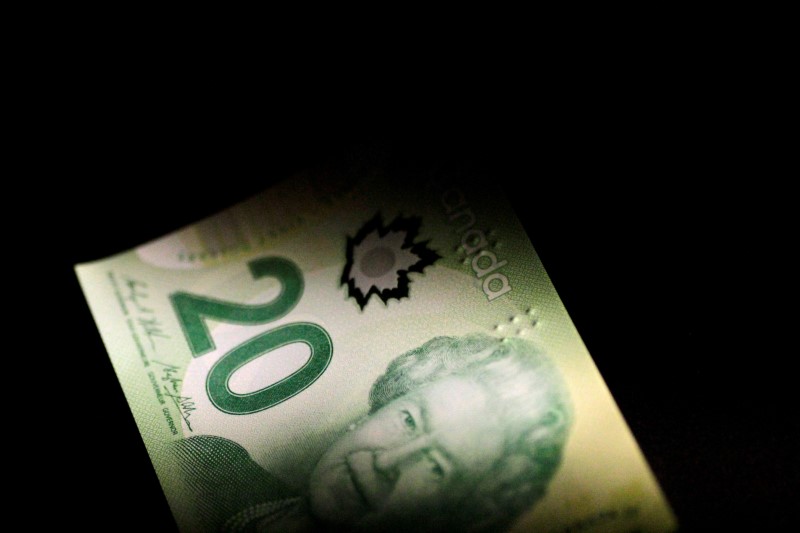TORONTO (Reuters) - The Canadian dollar was nearly unchanged against its broadly firmer U.S. counterpart on Monday, after hitting a five-week high earlier in the session as it added to gains made on Friday following much stronger-than-expected domestic jobs data.
The data showing a surge in jobs in November came ahead of a Bank of Canada interest rate decision on Wednesday.
The central bank is expected to leave its benchmark interest rate steady at 1 percent. But chances of a hike in January have increased to more than 50 percent from 47 percent before Friday's jobs data.
At 9:18 a.m. ET (1418 GMT) the Canadian dollar
The currency's weakest level of the session was C$1.2726, while it touched its strongest since Oct. 25 at C$1.2656.
The U.S. dollar (DXY) broke a three-day losing streak against a basket of major currencies after the U.S. Senate approved a major tax overhaul at the weekend.
Prices of oil, one of Canada's major exports, fell after U.S. shale drillers last week added more rigs, but still held close to their highest since mid-2015.
U.S. crude (CLc1) prices were down 1.25 percent at $57.63 a barrel.
Canada will continue to explore a free trade agreement with China, Canadian Prime Minister Justin Trudeau said, as it weighs its options after the United States threatened to pull out of the North American Free Trade Agreement.

Canadian government bond prices were lower across the yield curve in sympathy with U.S. Treasuries. The two-year (CA2YT=RR) fell 4.5 Canadian cents to yield 1.544 percent and the 10-year (CA10YT=RR) declined 25 Canadian cents to yield 1.939 percent.